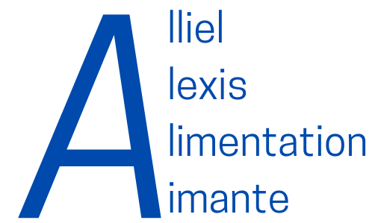When Chronic Pain Meets Food
Endometriosis and Eating Behaviors: Navigating Chronic Pain and Digestive Health
Endometriosis affects 190 million women globally—approximately 10% of women of reproductive age—yet over 90% of women with this condition experience gastrointestinal symptoms as their initial presenting symptoms. For English-speaking expatriates in Paris managing endometriosis, this statistic reveals a crucial reality: your digestive struggles and changing relationship with food aren't separate issues from your endometriosis—they're integral parts of the condition that deserve specialized attention and understanding.
The relationship between endometriosis and eating behaviors is complex and multifaceted, involving chronic pain's impact on appetite, extensive digestive symptoms that can mimic irritable bowel syndrome, and the psychological toll of managing an invisible chronic illness in a foreign country. Recent 2023 research from Yale University has revealed shared genetic variants between endometriosis and eating disorders, depression, and anxiety, confirming that the connection goes deeper than previously understood—this isn't simply about pain affecting your appetite, but about fundamental neurobiological pathways that influence both conditions.
For expatriates in Paris, managing endometriosis-related eating challenges carries additional burdens: navigating French healthcare systems with limited English-speaking specialists, adapting dietary strategies to local food availability, and managing the isolation that comes with chronic illness while living far from your usual support networks. Understanding the medical reality behind your changing relationship with food is the first step toward developing sustainable strategies that honor both your body's needs and the practical realities of expat life in France.
The gut-endometriosis connection: More than just period pain
Endometriosis creates a complex web of digestive disruption that extends far beyond the reproductive organs. Research shows that endometrial tissue can implant directly on or near the bowel, creating what's known as bowel endometriosis, which affects 3-37% of women with the condition. However, even women without bowel implants experience significant gastrointestinal symptoms, with over 90% reporting bloating as their most common symptom, followed by constipation, diarrhea, and painful bowel movements.
The mechanisms behind these digestive symptoms are more complex than simple anatomical involvement. Endometriosis creates a state of chronic inflammation throughout the pelvic cavity, affecting nerve pathways that control digestive function. The condition also disrupts the gut microbiome significantly—2025 research shows 91.9% of endometriosis patients have small intestinal bacterial overgrowth (SIBO) compared to 83.1% of controls, with altered ratios of beneficial bacteria that contribute to both digestive symptoms and mood regulation.
Women with endometriosis have a 3-5 times greater risk of developing irritable bowel syndrome, with some studies showing IBS rates as high as 52% in endometriosis patients. This overlap creates diagnostic challenges, particularly in France where healthcare providers may not immediately connect digestive symptoms to gynecological conditions. The cyclical nature of symptoms—worsening during menstruation due to hormonal fluctuations—provides a crucial diagnostic clue that many providers overlook.
For expatriates, these digestive symptoms can be particularly challenging when adapting to French cuisine and dining culture. Traditional French foods that you once enjoyed may suddenly trigger symptoms, leading to anxiety around social eating situations and potentially restrictive eating patterns as you try to identify "safe" foods. The unpredictability of symptom flares can make meal planning and social commitments difficult, contributing to the isolation that many expatriates with chronic illness experience.
Chronic pain's impact on eating patterns and food relationships
Chronic pelvic pain fundamentally alters eating behaviors in ways that extend far beyond simple appetite loss. Research reveals that 66.4% of women with endometriosis report changing their eating habits after diagnosis, with pain severity directly correlating with the extent of dietary modifications. Pain becomes the primary driver of food choices, often overriding natural hunger and fullness cues as women learn to eat defensively to avoid symptom exacerbation.
The psychological relationship with food becomes complicated when eating itself can trigger pain. Many women develop hypervigilance around food choices, constantly monitoring how different foods affect their symptoms. This hypervigilance can evolve into restrictive eating patterns, fear of certain foods, or complete avoidance of foods that are perceived as triggers, even when the connections aren't scientifically established.
Pain flares create unpredictable eating patterns that disrupt normal meal rhythms. During severe pain episodes, appetite disappears entirely, while pain medications may cause nausea or digestive side effects that further complicate food intake. When pain subsides, some women experience intense hunger or cravings, leading to erratic eating patterns that can trigger guilt or shame about lack of "control" over eating behaviors.
Fatigue, affecting 22% of women with endometriosis chronically, creates additional eating challenges. Meal planning, grocery shopping, and cooking become overwhelming tasks during pain flares or severe fatigue periods. This can lead to reliance on processed foods, irregular eating schedules, or neglecting nutritional needs entirely during difficult periods.
For expatriates in Paris, these pain-driven eating changes intersect with cultural adaptation challenges. French food culture emphasizes regular meal times, social eating, and culinary enjoyment—all of which can feel impossible when managing unpredictable chronic pain. The guilt and frustration of missing social meals or being unable to enjoy food can compound the emotional toll of living with endometriosis abroad.
Evidence-based approaches to endometriosis and digestive health
Current evidence supports anti-inflammatory dietary approaches for endometriosis management, with the Mediterranean diet showing the strongest research support. Studies demonstrate significant pain reduction when women adopt eating patterns rich in omega-3 fatty acids, antioxidants, fiber, and anti-inflammatory compounds. However, these dietary approaches must be implemented carefully to avoid triggering restrictive eating patterns or creating additional stress around food choices.
Specific nutritional interventions showing promise include:
High-fiber diets (35g daily) to support estrogen elimination and reduce inflammation
Omega-3 fatty acids from fish, walnuts, and flaxseeds for their anti-inflammatory properties
Antioxidant-rich foods including colorful vegetables and fruits to combat oxidative stress
Probiotic support to address the gut microbiome disruption common in endometriosis
However, elimination diets require careful consideration. While 75% of women in one study reported decreased pain after adopting a gluten-free diet for 12 months, elimination diets can trigger disordered eating patterns in vulnerable individuals. Any dietary restrictions should be implemented with professional guidance and regular monitoring for nutritional adequacy and psychological well-being.
The SIBO connection requires specialized attention. With over 90% of endometriosis patients showing evidence of small intestinal bacterial overgrowth, addressing gut health becomes crucial for both digestive symptoms and pain management. Low-FODMAP diets, when properly supervised, can provide significant relief for both IBS-like symptoms and endometriosis-related digestive issues.
Mechanical eating strategies help when pain disrupts natural hunger cues. During pain flares, structured meal timing ensures adequate nutrition even when appetite is absent. This isn't about restriction—it's about providing consistent nourishment when the body's natural eating cues are disrupted by pain or medication side effects.
Creating comprehensive care in Paris: Navigating French healthcare for endometriosis
Accessing appropriate endometriosis care in Paris requires understanding both public and private healthcare options. The condition is recognized in the French healthcare system as "endométriose," and specialized treatment is available through both hospital centers and private practitioners. Start by searching Doctolib for gynecologists who specifically list endometriosis expertise, looking for terms like "spécialiste en endométriose" or "prise en charge de l'endométriose."
Several Paris hospitals have established endometriosis centers with multidisciplinary teams, including Hôpital Tenon, Hôpital Cochin, and Hôpital Saint-Antoine. These centers typically offer comprehensive care including gynecology, pain management, digestive health specialists, and sometimes psychological support. However, English-speaking services may be limited, so consider bringing a translator for complex medical discussions.
Our specialized practice serves the English-speaking expatriate community with offices in the 6th and 20th arrondissements, as well as Le Raincy. We understand both the medical complexities of endometriosis and the unique challenges faced by expatriates in accessing appropriate care. Our approach integrates digestive health support with eating disorder awareness, recognizing that restrictive dietary approaches can be harmful for individuals with chronic illness.
Insurance considerations are crucial for comprehensive endometriosis care. French social security covers basic gynecological treatment and diagnostic procedures, but specialized nutritional counseling, psychological support, or alternative treatments may require private insurance or out-of-pocket payment. Many expatriate insurance plans include coverage for chronic condition management—verify what services are covered under your specific policy.
Building your care team should include a gynecologist specializing in endometriosis, a gastroenterologist if digestive symptoms are prominent, a pain management specialist, and ideally a dietitian with experience in both chronic illness and eating disorder awareness. This multidisciplinary approach addresses the complex interplay between reproductive health, digestive function, pain management, and nutritional needs.
Documentation is essential when working with French healthcare providers. Keep detailed records of symptoms, pain levels, digestive issues, and how these relate to your menstrual cycle. Apps like Clue or Flo can help track patterns, and having this data available in French ("douleurs pelviennes," "troubles digestifs," "ballonnements") will facilitate communication with providers.
Conclusion
Endometriosis represents more than a gynecological condition—it's a complex systemic disease that affects digestive function, eating behaviors, and overall quality of life. The recent recognition of genetic connections between endometriosis and eating disorders highlights the importance of addressing both conditions with specialized, integrated care approaches.
As an expatriate in Paris, you don't have to navigate the intersection of endometriosis and eating challenges alone. With appropriate medical support, evidence-based nutritional strategies, and awareness of the psychological impacts of chronic illness, you can develop sustainable approaches to managing your condition while maintaining a healthy relationship with food.
The key lies in understanding that your changing relationship with food in the context of endometriosis isn't a failure of willpower—it's a complex interaction between chronic pain, digestive dysfunction, and the psychological toll of managing a chronic illness. With the right support team and treatment approach, you can address these challenges comprehensively while honoring your body's needs and working toward optimal quality of life.
Living and eating are two sides of the same coin. Lighten your relationship with food and free yourself from what doesn't serve you!
Sources and References
National Center for Biotechnology Information (NCBI) - Associations Between Endometriosis and Gut Microbiota
PubMed Central - Microbiota in Irritable Bowel Syndrome and Endometriosis: Birds of a Feather Flock Together
Yale Medicine - Women With Endometriosis Also Genetically Predisposed to Depression, Anxiety, and Eating Disorders
International Journal of Gynecology & Obstetrics - Small intestinal bacterial overgrowth in endometriosis patients
Frontiers in Nutrition - The impact of endometriosis on dietary choices and activities of everyday life
PubMed Central - Nutrition in the prevention and treatment of endometriosis
📚 Women's Health: Discover links with PCOS and PMDD. For life transitions: post-partum and menopause.


Vivre et manger sont les deux faces de la même pièce
Lighten your relationship with food and free yourself from what hinders you!
+33 6 22 41 55 21
© 2024. All rights reserved.
RPPS : 10007258733
N° ADELI : 75 95 0878 1
